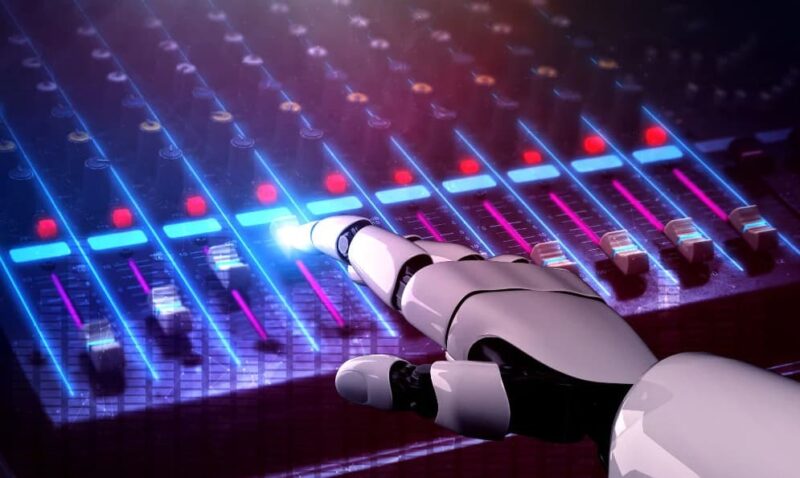Entertainment
AI in Music: British Startups Transform Audio Production

A new wave of British startups is transforming the music industry by using artificial intelligence to change how songs are produced, mixed, and mastered. What was once the exclusive domain of sound engineers and producers is now being revolutionised by algorithms capable of composing melodies, enhancing vocals, and even generating entire arrangements. Across London and other UK creative hubs, the fusion of technology and artistry is reshaping the boundaries of what’s possible in audio production.
This innovation marks a turning point for both musicians and producers. AI tools are enabling faster creative workflows, new sound textures, and greater accessibility for independent artists. What began as simple automation has evolved into a sophisticated partnership between human creativity and machine precision. As AI tools become more intuitive and affordable, the United Kingdom is positioning itself as a leader in the emerging field of intelligent music production.
How AI is Redefining Music Production
AI-powered platforms are changing nearly every aspect of the music-making process. Startups in London and Manchester have introduced systems that can analyse rhythm patterns, identify tonal balance, and automatically adjust equalisation and compression settings. These tools save hours of manual editing while maintaining studio-quality results.
For example, machine learning models trained on thousands of professionally mixed tracks can now replicate the sonic profiles of specific genres or iconic producers. Artists can use AI to achieve the warmth of classic analogue recordings or the clarity of modern pop productions in just a few clicks. Beyond technical processing, AI tools are also assisting in songwriting by suggesting chord progressions, harmonies, and lyrics based on mood, tempo, and theme.
This new generation of technology is not replacing musicians but rather empowering them. Artists who once relied on large production teams can now create high-quality tracks independently. Small studios and self-taught producers can achieve professional results on lower budgets, broadening access to the music industry for a new generation of creators.
The Rise of British Music-Tech Innovation
The UK’s reputation as a global music powerhouse has helped fuel its growing music-tech ecosystem. Startups based in London, Bristol, and Edinburgh are collaborating with universities and record labels to push the boundaries of sound technology. These companies are developing AI plugins for digital audio workstations, automated mastering tools, and intelligent voice synthesis software that allows for real-time vocal transformations.
British innovators are also experimenting with live applications of AI. Some performance platforms use predictive algorithms that respond to the tempo or mood of a concert, adjusting sound levels and lighting dynamically. Others are developing AI-powered sound design systems for film and gaming, where adaptive music responds to player actions or scene transitions. This cross-industry collaboration is turning the UK into a key testing ground for next-generation audio technology.
The commercial potential is equally significant. Global demand for AI-assisted music production tools is rising rapidly as artists, advertising agencies, and entertainment companies seek faster and more cost-effective creative solutions. British startups are attracting international investment and partnerships with major labels and streaming services that recognise the competitive advantage of these innovations.
Creative Ethics and the Human Touch
The increasing role of AI in music also raises important ethical and artistic questions. Musicians and industry professionals are debating how much creative control should be delegated to algorithms. Some argue that overreliance on automation could homogenise sound, reducing individuality in artistic expression. Others believe that AI can serve as a powerful creative collaborator rather than a replacement for human intuition.
One major topic is authorship. When an AI system generates melodies or lyrics, who owns the rights to the final piece? Startups are addressing these questions by developing transparent frameworks for credit and compensation, ensuring that artists retain ownership even when using AI assistance. Many British producers are adopting hybrid workflows where AI handles technical adjustments while humans guide the emotional and conceptual direction of a track.
The human touch remains irreplaceable. Listeners connect not only to perfect sound quality but also to emotion and imperfection, qualities that machines cannot fully replicate. The most successful uses of AI in music focus on complementing human expression, enhancing creativity without overshadowing it.
Conclusion
AI is reshaping the sound of modern music, and British startups are leading the charge. By blending creativity with technology, the UK’s innovators are redefining how songs are written, produced, and experienced. While challenges around ethics and authorship remain, the future of music production looks more open, experimental, and collaborative than ever before. As AI tools continue to evolve, they promise to amplify human creativity rather than replace it, ensuring that the music of tomorrow remains both innovative and deeply human.










